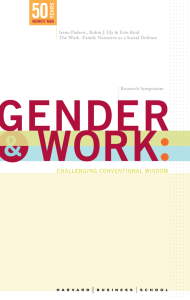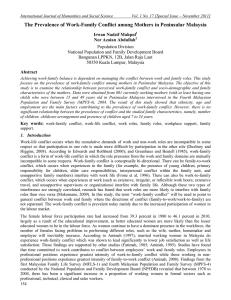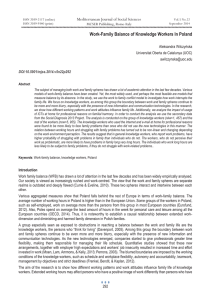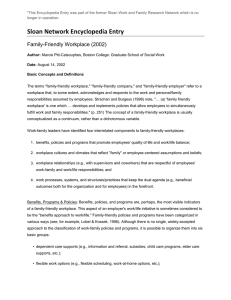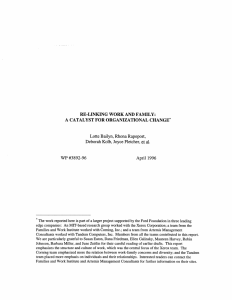HUMAN DEVELOPMENT AND FAMILY STUDIES DISSERTATION
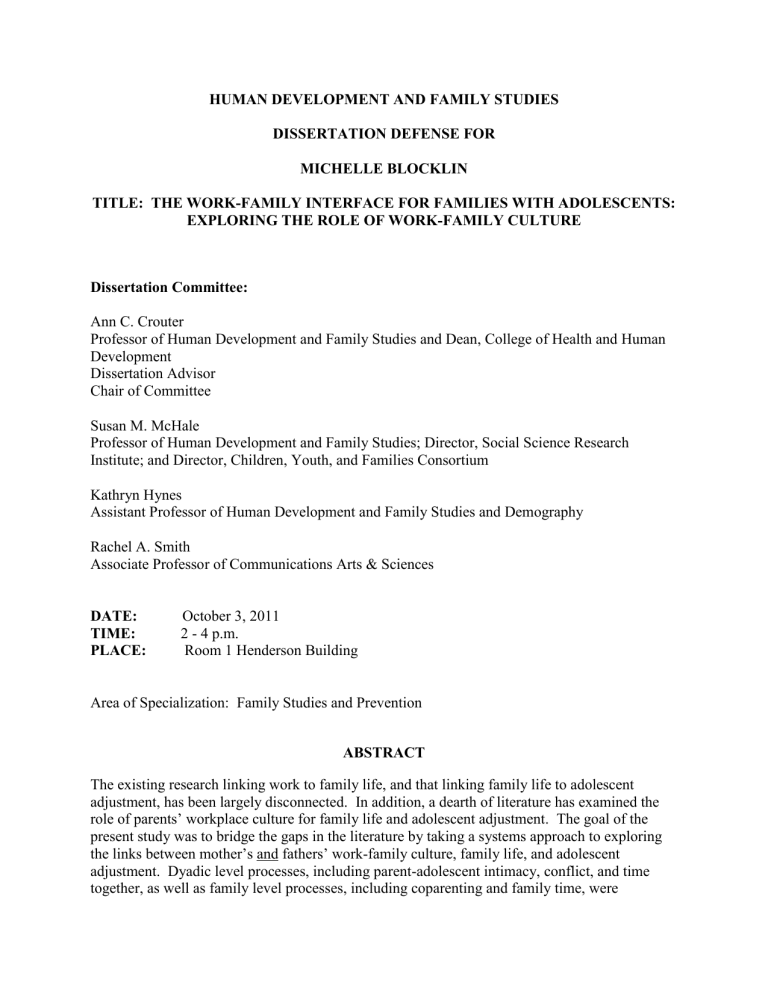
HUMAN DEVELOPMENT AND FAMILY STUDIES
DISSERTATION DEFENSE FOR
MICHELLE BLOCKLIN
TITLE: THE WORK-FAMILY INTERFACE FOR FAMILIES WITH ADOLESCENTS:
EXPLORING THE ROLE OF WORK-FAMILY CULTURE
Dissertation Committee:
Ann C. Crouter
Professor of Human Development and Family Studies and Dean, College of Health and Human
Development
Dissertation Advisor
Chair of Committee
Susan M. McHale
Professor of Human Development and Family Studies; Director, Social Science Research
Institute; and Director, Children, Youth, and Families Consortium
Kathryn Hynes
Assistant Professor of Human Development and Family Studies and Demography
Rachel A. Smith
Associate Professor of Communications Arts & Sciences
DATE: October 3, 2011
TIME: 2 - 4 p.m.
PLACE: Room 1 Henderson Building
Area of Specialization: Family Studies and Prevention
ABSTRACT
The existing research linking work to family life, and that linking family life to adolescent adjustment, has been largely disconnected. In addition, a dearth of literature has examined the role of parents’ workplace culture for family life and adolescent adjustment. The goal of the present study was to bridge the gaps in the literature by taking a systems approach to exploring the links between mother’s and fathers’ work-family culture, family life, and adolescent adjustment. Dyadic level processes, including parent-adolescent intimacy, conflict, and time together, as well as family level processes, including coparenting and family time, were
examined as aspects of family life expected to link parents’ workplace culture to adolescent adjustment. Data were drawn from a study on family relationships in dual-earner families in which information was collected from both parents and two adolescent siblings in each family, a design that allowed for the comparison of individuals within the family as well as the examination of both actor and partner effects of both mothers’ and fathers’ work-family cultures. Descriptive analyses examined differences, as well as potential interdependence, between family members. Structural equation models were used to model links between mothers’ and fathers’ work-family cultures, parent-child dyad and family processes, and adolescent adjustment for both older and younger siblings. Results demonstrated that workfamily culture did indeed have associations beyond the workplace and with family life. Results were consistent with the idea that both dyadic and family processes serve as pathways through which parents’ work-family cultures are linked to adolescent adjustment. Fathers’ work-family culture appeared to play a particularly important role vis a vis affective components of parentadolescent relationships, whereas mothers’ work-family culture appeared to matter via temporal components of family relationships. Sibling differences were also revealed. Moderation analyses tested whether or not the overall models varied based on adolescent gender, socioeconomic status, mothers’ work hours, or fathers’ work hours. The role of the combination of mothers’ and fathers’ work-family cultures was also tested. No evidence for moderation or the role of mothers’ and fathers’ work-family cultures in combination emerged. The overall models were notably robust and did not appear to vary as a function of these individual and family circumstances. Mothers’ and fathers’ work-family cultures also appeared to function independently of one another. The discussion highlights the implications of the findings for future workplace policy and intervention research.
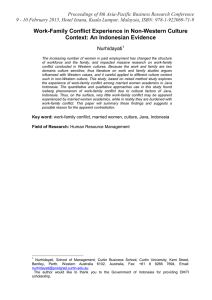
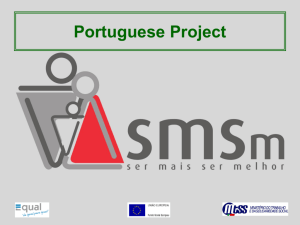
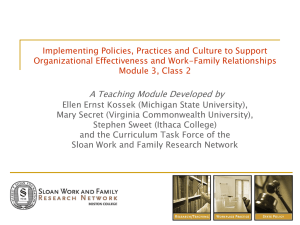
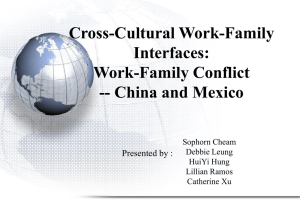

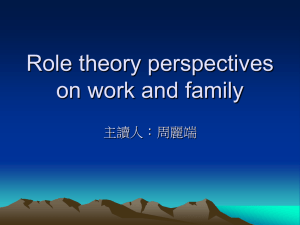
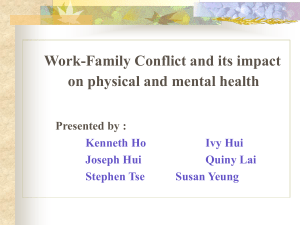
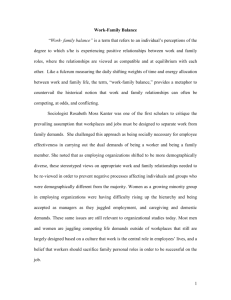

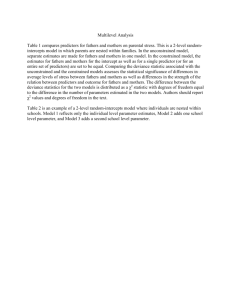


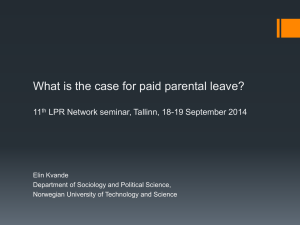

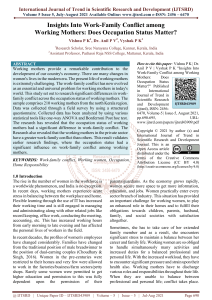
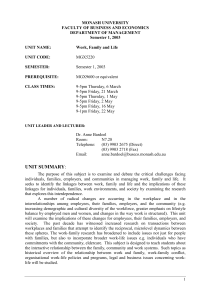
![[Edited] M. Secret review of Work and Life Integration](http://s3.studylib.net/store/data/007401433_1-93a8f56817d885815d49cb45034a65a4-300x300.png)
